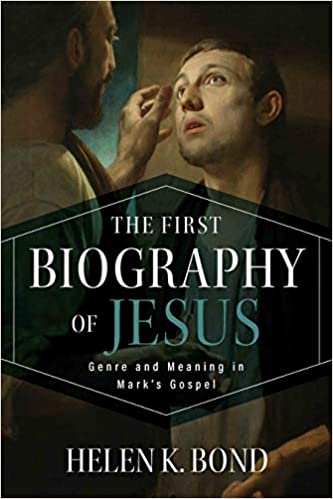BEN: One of the more interesting monographs about Mark in the last few decades is Maurice Casey’s monograph which shows or attempts to show that large portions of Mark’s Gospel is translation Greek from a Semitic language. Rather than having a few stray Aramaisms or Semitisms, the Greek in Mark involves considerable translation. Have you read Casey’s work, and if so, what would you say about it? It might support the report of Papias that Mark translated Peter’s materials which were originally in Aramaic.
HELEN:
Yes, I read Maurice’s book when it came out. I have the utmost respect for him as a scholar, but I don’t really agree with his views on Mark. The short paragraphs in Mark are nicely crafted chreiai, or anecdotes, the little episodes that were taught to students in the Greek system. I don’t doubt that Mark had many sources, some of which may well have been in Aramaic (either oral or written), but I don’t think he’s translating them here. Stories about Jesus would have been circulating for a variety of purposes; unlike the form critics I tend to think they would have been substantially retold at every iteration with the specific interests of both the storyteller and the audience in mind (thus there never was an ‘original’ form).
Strange as it may seem to anyone reading this, I’m actually rather more positive towards a connection between Mark and Peter than many scholars. If both of them were associated with the Roman church as I believe it would be odd if they weren’t connected in some way. And a connection with Peter would certainly explain the enormous early success of Mark’s work (and of course it’s retention in the canon once Matthew had gained the ascendancy – though by now, it was enshrined in tradition). But if there is a connection, then it’s already some time in the past (I imagine Mark to have been written in the mid-70s, probably a decade or so after Peter’s death), and once again the need for a work that spoke to the needs of his audience would have outweighed any antiquarian sense that Mark needed to preserve the precise words of Peter (even if they could now be remembered). So much would have changed between Peter’s death and Mark’s biography – not least the destruction of the Temple and the continued delay of Jesus’ return. The work is clearly Mark’s own, but I wouldn’t be surprised if there were some links to Peter at a much deeper level.












